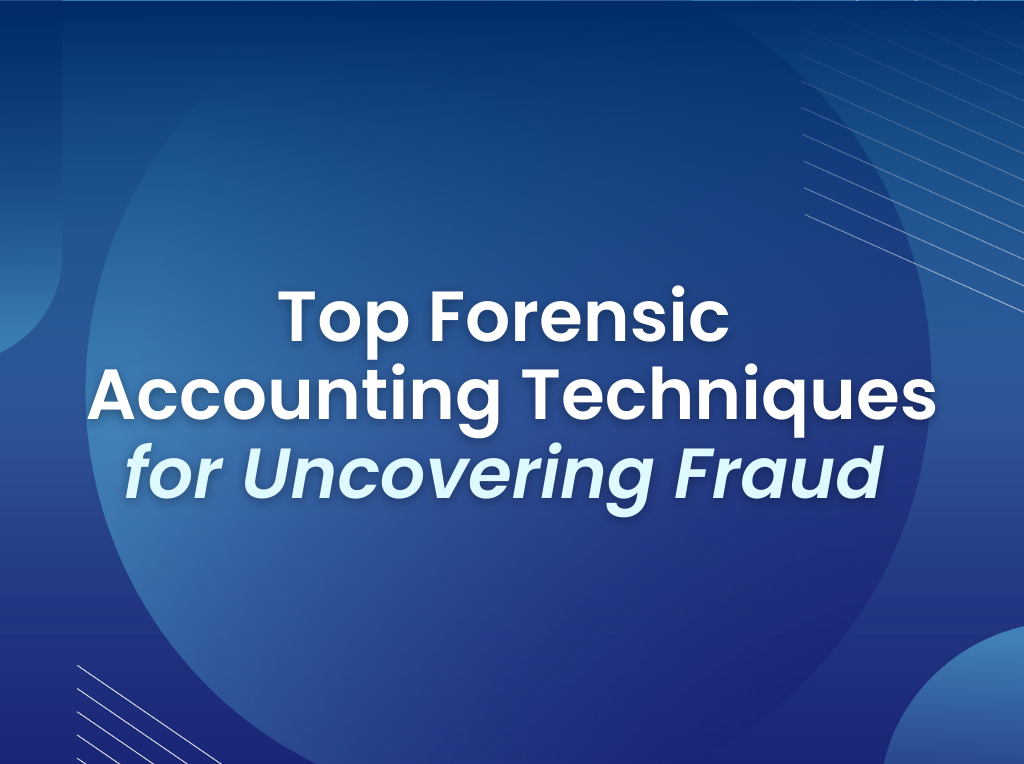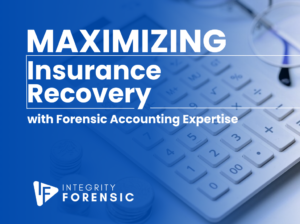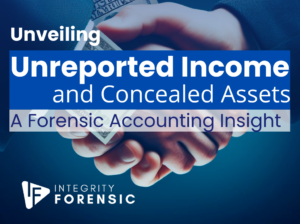In today’s complex business landscape, financial fraud has become a persistent threat to organizations worldwide. Fortunately, forensic accounting techniques offer a powerful arsenal to identify, investigate, and prevent fraudulent activities. In this article, we will explore the top forensic accounting techniques used to uncover fraud, shedding light on their effectiveness and the value they bring to businesses.
Data Analysis: Forensic accountants leverage advanced data analysis tools to scrutinize financial records, transactions, and patterns. By analyzing large volumes of data, they can identify anomalies, irregularities, and suspicious activities that may indicate fraudulent behavior.
Financial Statement Analysis: Forensic accountants meticulously examine financial statements, looking for inconsistencies, false entries, or manipulated figures. By comparing financial data across different periods, they can detect unusual trends or discrepancies that may point to fraudulent activities.
Asset Tracing: Forensic accountants trace the flow of funds and assets to uncover hidden assets, undisclosed transactions, or misappropriation of funds. Through meticulous examination of financial records and bank statements, they can identify complex schemes designed to hide or divert funds.
Interviewing and Interrogation: Skilled in conducting interviews, forensic accountants gather valuable information from individuals involved in financial transactions. These interviews can unveil hidden relationships, and collusion, or provide insights into fraudulent activities.
Digital Forensics: With the rise of technology, digital forensics has become a crucial component of forensic accounting. Forensic accountants use specialized tools to recover and analyze electronic data, including emails, documents, and digital transactions, to identify digital evidence of fraud.
Lifestyle Analysis: By analyzing an individual’s reported income and expenses, forensic accountants can compare them with their actual lifestyle. Discrepancies may indicate unreported income, hidden assets, or fraudulent activities.
By employing these top forensic accounting techniques, organizations can proactively detect and prevent fraud, protecting their financial health and reputation. It is essential to engage the services of experienced forensic accountants who possess the necessary skills and expertise to navigate complex financial investigations.
To conclude, the application of forensic accounting techniques is vital for uncovering fraud and mitigating financial risks. Through data analysis, financial statement analysis, asset tracing, interviewing, digital forensics, and lifestyle analysis, businesses can enhance their fraud detection capabilities and safeguard their financial integrity. By partnering with skilled forensic accountants, organizations can stay one step ahead in the fight against fraud and maintain trust in their financial operations.
Our team at Integrity Forensic comprises highly skilled forensic accountants ready to provide you with expert assistance. Contact us today for a complimentary consultation by dialing 855-673-9999, or feel free to reach out to us via email at questions@integrityforensic.com. We look forward to addressing your needs.





